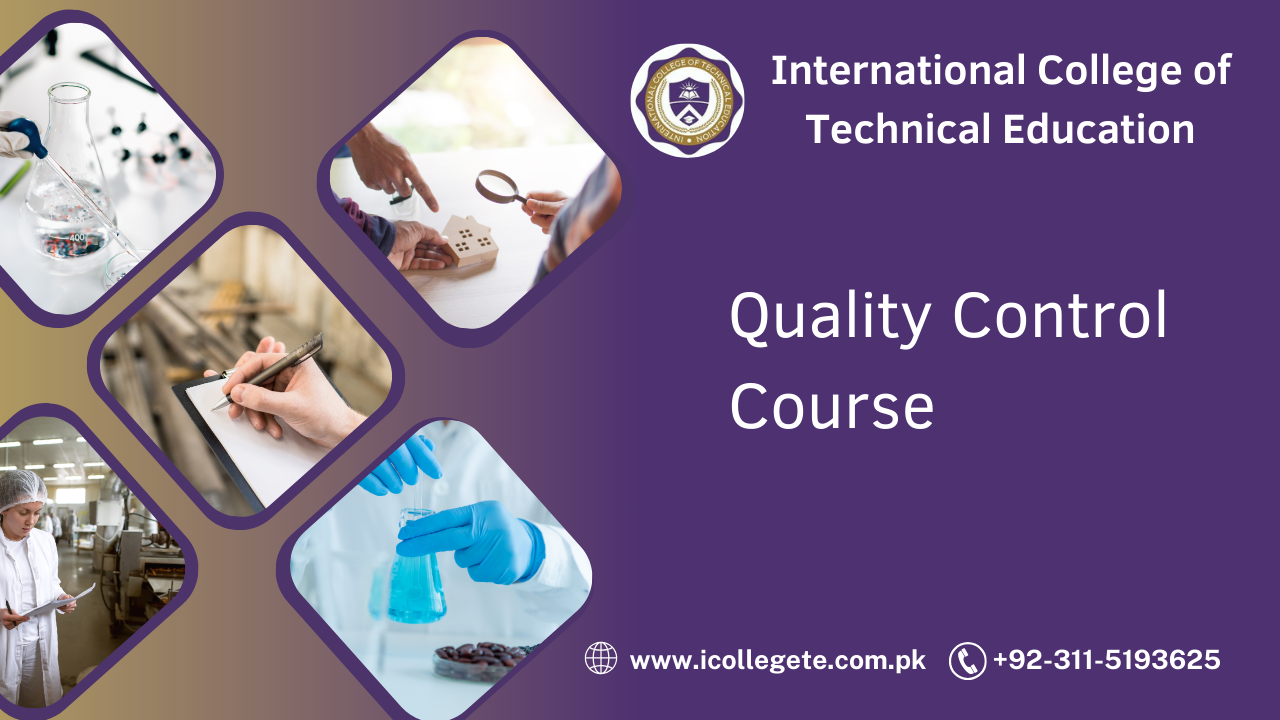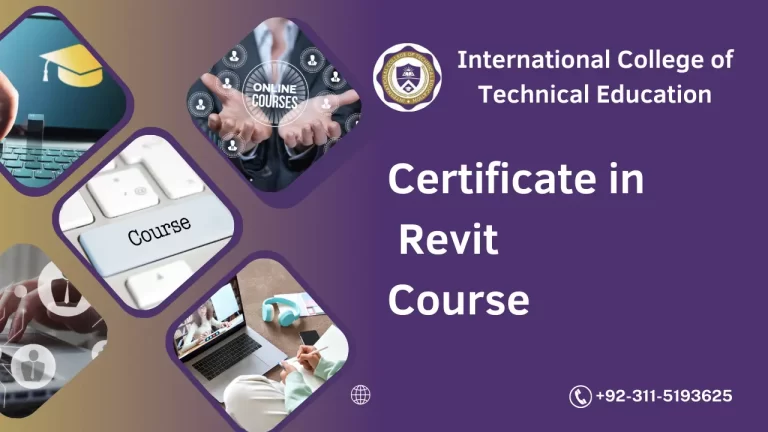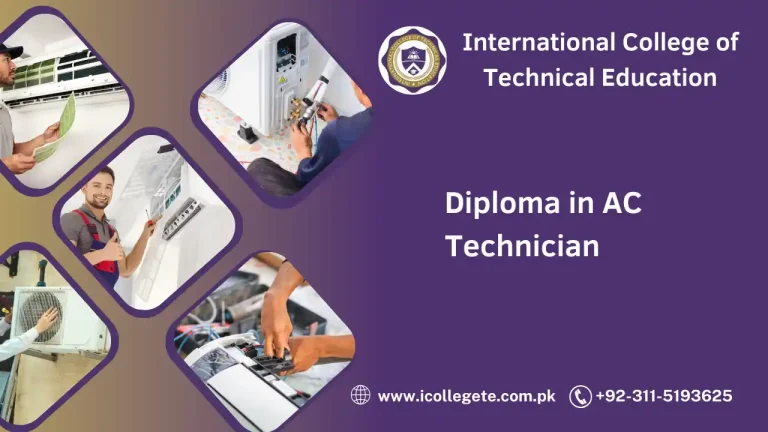Quality control (QC) is a crucial aspect of every production and manufacturing process. Whether in the textile, automotive, or electronics industries, ensuring products meet certain standards and specifications is vital for maintaining customer satisfaction and regulatory compliance. The Quality Control course in Sialkot offers an excellent opportunity for individuals to gain the knowledge and skills needed to manage quality control processes and ensure the highest standards of production.
The Quality Control course in Sialkot is designed to equip individuals with the essential tools and techniques needed to oversee quality control processes in various industries. The course focuses on the key principles and methodologies that help businesses maintain product standards and optimize operational efficiency. From raw material inspection to final product testing, this course covers all stages of the quality control process, empowering students to take charge of ensuring consistent quality at every level of production.
In today’s competitive market, maintaining high-quality standards is critical not only for customer satisfaction but also for long-term business success. The Quality Control course provides students with a blend of theoretical knowledge and practical experience, preparing them for a variety of roles in manufacturing and production environments.
Course Overview
The Quality Control course in Sialkot is comprehensive and aims to build a strong foundation in quality management principles and techniques. The course is designed to provide hands-on experience in inspection, testing, and troubleshooting, along with an understanding of industry-specific standards and regulations.
Students will learn about key topics such as quality planning, quality assurance, process control, and statistical quality control. The course also covers modern tools and technologies used in quality management, including automation and software applications, which are becoming increasingly important in today’s production environments.
Through case studies, group discussions, and practical assignments, the course prepares students to understand and apply quality control methods in real-world settings.
Study Units
The Quality Control course in Sialkot includes the following key study units:
- Introduction to Quality Control
- Definition and importance of quality control
- Overview of the quality control process
- Quality standards and regulatory requirements in various industries
- Quality Management Systems (QMS)
- Principles of quality management
- ISO 9001 and other global quality standards
- Implementing and maintaining QMS in manufacturing processes
- Inspection and Testing Methods
- Types of inspections (visual, mechanical, chemical)
- Testing techniques (destructive and non-destructive testing)
- Sampling methods and procedures
- Statistical Quality Control (SQC)
- The role of statistics in quality control
- Control charts, process capability analysis
- Statistical tools for measuring quality (mean, variance, standard deviation)
- Process Control and Improvement
- Process flow analysis and optimization
- Identifying process bottlenecks and inefficiencies
- Techniques for continuous improvement (Kaizen, Six Sigma, Lean)
- Root Cause Analysis and Problem Solving
- Methods of identifying the root causes of quality issues
- Problem-solving tools (5 Whys, Fishbone diagram, Failure Mode and Effects Analysis – FMEA)
- Corrective and preventive actions
- Quality Assurance and Auditing
- Differences between quality control and quality assurance
- The role of audits in quality management
- Preparing for and conducting quality audits
- Emerging Trends in Quality Control
- Automation in quality control
- Quality control in digital manufacturing and 3D printing
- Use of AI and machine learning in quality inspection
Learning Outcomes
Upon completion of the Quality Control course in Sialkot, students will be able to:
- Understand and apply the core principles of quality control in various industries.
- Implement and manage quality control systems and ensure compliance with international quality standards like ISO 9001.
- Use statistical tools and techniques to monitor and improve quality in production processes.
- Conduct effective inspections and tests, identifying defects and ensuring products meet predefined specifications.
- Analyze production processes and suggest improvements for better quality management.
- Conduct quality audits, both internal and external, and take corrective actions based on audit findings.
- Solve quality-related problems using root cause analysis and industry-standard problem-solving tools.
- Stay updated on the latest trends and technologies in quality control, ensuring that they can manage evolving production environments.
Course Benefits
- Industry-Relevant Skills: The Quality Control course in Sialkot provides essential skills that are directly applicable to real-world manufacturing and production environments. These skills are in high demand across a wide range of industries, including textiles, electronics, automotive, and pharmaceuticals.
- Hands-On Training: The course offers practical experience through case studies, industry visits, and project work, enabling students to apply theoretical knowledge in real-world scenarios.
- Career Advancement: By gaining expertise in quality control, students are well-positioned for career growth in quality management and assurance roles. The course enhances the employability of graduates and prepares them for leadership positions in production and manufacturing sectors.
- Global Standard Knowledge: The course covers global quality management standards like ISO 9001, making students knowledgeable about international best practices, and increases their ability to work with global companies or in international markets.
- Problem-Solving Skills: Students will develop critical thinking and problem-solving skills that are essential in identifying and resolving quality issues, ensuring efficiency and product consistency in manufacturing operations.
- Increased Efficiency: Understanding and applying quality control methods can significantly reduce wastage, improve productivity, and reduce production costs, benefiting both employees and employers.
Who is This Course For?
The Quality Control course in Sialkot is ideal for:
- Manufacturing Professionals: Individuals already working in manufacturing or production roles who want to formalize their knowledge of quality control and improve their career prospects.
- Quality Assurance Inspectors: Those working in quality assurance or inspection roles looking to enhance their understanding of the quality control process.
- New Graduates: Fresh graduates looking to enter the manufacturing, production, or quality control sectors can greatly benefit from this course to start their careers with the right skills.
- Managers and Supervisors: Production and operations managers looking to upgrade their skills in quality control and improve their team’s efficiency and product quality.
- Entrepreneurs: Business owners or entrepreneurs in manufacturing industries who want to ensure that their products meet high-quality standards and compliance with industry regulations.
Future Progression
The Quality Control course in Sialkot opens up numerous career progression opportunities, including roles such as:
- Quality Control Manager
- Quality Assurance Specialist
- Process Improvement Manager
- Production Supervisor
- Compliance Officer
- Operations Manager
- Supply Chain Quality Coordinator
- Lean/Six Sigma Specialist
For those who wish to advance their education further, the course provides a solid foundation for pursuing specialized certifications in quality management, such as Six Sigma Green Belt or Black Belt, Certified Quality Auditor (CQA), and Certified Quality Engineer (CQE).
Additionally, students may choose to pursue higher education degrees in Industrial Engineering, Manufacturing Management, or Operations Management, which will further enhance their qualifications and open doors to more senior roles in the industry.
the Quality Control course in Sialkot is an invaluable opportunity for anyone looking to enhance their knowledge of quality management in manufacturing and production. By providing a combination of theoretical learning and practical application, this course prepares students to play a key role in ensuring the highest standards of quality in production processes across a range of industries. Whether you are a beginner or an experienced professional, this course will help you elevate your career and contribute to business success through quality excellence.







